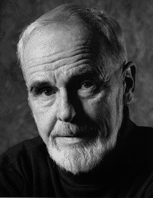Until recently I thought certain people were being unduly alarmist in their worry that Catholic hospitals may be forced to shut down if they refuse to supply abortions. I still think the threat is remote, but maybe it is closer than I had thought.
What brings this to mind is the political pressure play that some members of the American Philosophical Association are putting on such Christian "covenanted” universities and colleges as Biola, Calvin College, Pepperdine and Wheaton.
Almost 1,500 philosophers have signed a petition calling for censure of these schools by banning them from advertising in the A.P.S.'s "Jobs for Philosophers” listing and giving them some kind of black mark for unjust discrimination.
The signers’ mission is, they say, to "protect homosexual philosophers.” On his blog site, the originator of the petition cites the offense of these schools by quoting from the Wheaton College "Community Covenant”: "We believe that these Christian standards will show themselves in a distinctly Christian way of life.... This lifestyle involves practicing those attitudes and actions the Bible portrays as virtuous and avoiding those the Bible portrays as sinful.... Scripture condemns the following:...homosexual behavior.”
Even from this very ive quotation, it is evident that homosexual philosophers are not in need of protection. They certainly can be hired by the institutions in question. What is sought by the petition is the insurance that philosophers, whether homosexual or heterosexual, be hired by those schools even if such philosophers want to perform sexual acts that go against the school's creeds and moral codes. The "Statement of Faith” at the end of Wheaton's employment application cites Scripture as forbidding "pornography, pre-marital sex, adultery, homosexual behavior and all other sexual relations outside the bounds of marriage between a man and a woman.”
The section on sexual morality is only a tiny part of Wheaton's impressive credal covenant, some sections of which appear to exclude committed Catholics and surely exclude Jews. Should the American Philosophical Association have filed a discrimination complaint against Wheaton for this prejudice? Or should Calvin College be sanctioned if it requires Catholics or Jews to "affirm the confessions and respect the rich traditions of Reformed believers worldwide, and, in particular, those of the Christian Reformed Church”?
It seems, then, that if the American Philosophical Association censures these explicitly Christian institutions as unjust and discriminatory, it will officially condemn any institution whose members, in conscience and with reasoned defense, want to labor in a community of shared faith and moral commitment.
One may agree that homosexuals have been subject to discrimination and hate crimes, especially in the past, more rarely in our country presently, and more frequently in certain other countries right now. One may also question the wisdom of colleges and universities that by their covenant would exclude groups, whether Catholics, humanists or unmarried persons in a sexual relationship.
But to censure and threaten such institutions and exclude them from an association of philosophers that presumably affirms diversity and justice is strange indeed. These schools are not against homosexuals. They merely want, in conscience, to remain communities faithful to the Gospel according to their shared Protestant understanding of it. If the price of approval by the A.P.A. is the betrayal of their conscience, it is not a stretch to imagine the day when other believers will be candidates for censure and exclusion because they refuse to affirm actions that violate their consciences.
Another group of philosophers, in a new petition by Mark Murphy of Georgetown University, has challenged the wisdom of censuring the institutions in question. In "A Letter to the American Philosophical Association,” available on the Internet, you will find a courageous defense of the Protestant schools&mdashnot of their positions but of their right to live out their covenants without penalty from the A.P.A. It strikes me as courageous, because in these times of celebrating diversity and freedom of conscience, some diversities and consciences are not welcome.








